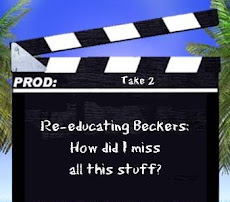
Dear Lemon Lima, a feature film at the Seattle International Film Festival, was an emotional ride through the lives of not-so-popular and nerdy kids in an underdog turns to hero movie.
Here's my take on an incredibly cute movie.
It was the beginning of Summer break. Vanessa and her boyfriend Philip are sitting on a picnic table talking about their plans. This is when it happens. Philip decides he has too many other important things going on in his life and in his future and he just doesn't have time for her any more. He breaks up with her, and walks away.
Vanessa spends her summer grieving about Philip. But things change when she is accepted and given a minority scholarship to the Nichols Academy, Phillip's school, because she is half Yup'ik Eskimo.
With Philip treating her so poorly she comes up with a plan of being a team leader for the school's biggest yearly event - the "Snowstorm Survivor Challenge." This is an event that Philip and his team had won the year before, so she sees another way of winning him back.
When it comes time to choose teams , Vanessa ends up picking all the other outcasts in school. The team name they choose is "FUBARs" which commonly means "fucked/fouled up beyond all/any repair/recognition." They are all the kids that she ends up meeting in the gym's weight room, because they have gotten hurt in gym class. It's a group of all girls except for one small awkward boy named Hercules, Vanessa's neighbor.
Hercules comes from extremely strict and overly protective parents. They decide he is not allowed to participate in the challenge and that he will be home schooled and learn to hunt in the future. Little Hercules is devastated by this news and ends up committing suicide with the same shotgun his father is teaching him to hunt with.
The movie seems to use the death Hercules as a sign of letting go and the release of caged animals. This is what I saw through Vanessa's eyes.
Team "FUBARS" is saddened by the loss and goes into the challenge with heavy hearts. They start off strong in the first couple of events but then lose one. It now comes down to the final event of the challenge and that is a native dance that is performed by one member of each team. It is the final showdown and it is between Philip and Vanessa. Predictably, Vanessa blows Philip away with her dance and team "FUBARs" walks away champions.

When this movie first started, I thought it was going to be a little childish. As you get into the storyline, you can't help but to fall in love with the outcast group and all the simple things of teenage boys and girls. There is so much humor in this movie, even the animation in the movie gets you engaged.
What I didn't realize from the trailer is that this movie is a
bout a girl learning to nurture her Native American heritage. Her father is from an indigenous Yup'ik Eskimo tribe in Alaska. It instantly reminded me of Whale

Rider, the film about a Maori girl who learns about her heritage.
The difference I see between the two movies is that Vanessa has no clue about her heritage and the only reason she does learn about it is because of the challenge at school. In the case of Whale Rider, Paikea is born into a world of Maori culture and it is her drive and strength that allows her to embrace her native indigenous roots. The common thread I find is that they are both looking for love: Paikea from her grandfather and Vanessa from Philip.
Being an athlete, I loved the competitive side of this movie, I also can appreciate the being kind and "love thy neighbor" aspect of it.
I laughed and I cried throughout this movie and loved every minute of it. I also loved seeing a girl who realized that friendship and being kind to others was much more important than chasing after pretentious boys.
Pictures are from:
www.yidio.com/dear-lemon-lima/id/2798640049
Dear Lemon Lima dearlemonlima.files.wordpress.com/2009/07/ct
Whale Rider witneyman.wordpress.com
The difference I see between the two movies is that Vanessa has no clue about her heritage and the only reason she does learn about it is because of the challenge at school. In the case of Whale Rider, Paikea is born into a world of Maori culture and it is her drive and strength that allows her to embrace her native indigenous roots. The common thread I find is that they are both looking for love: Paikea from her grandfather and Vanessa from Philip.
Being an athlete, I loved the competitive side of this movie, I also can appreciate the being kind and "love thy neighbor" aspect of it.
I laughed and I cried throughout this movie and loved every minute of it. I also loved seeing a girl who realized that friendship and being kind to others was much more important than chasing after pretentious boys.
Pictures are from:
www.yidio.com/
Dear Lemon Lima dearlemonlima.files.wordpress.com/
Whale Rider witneyman.wordpress.com










